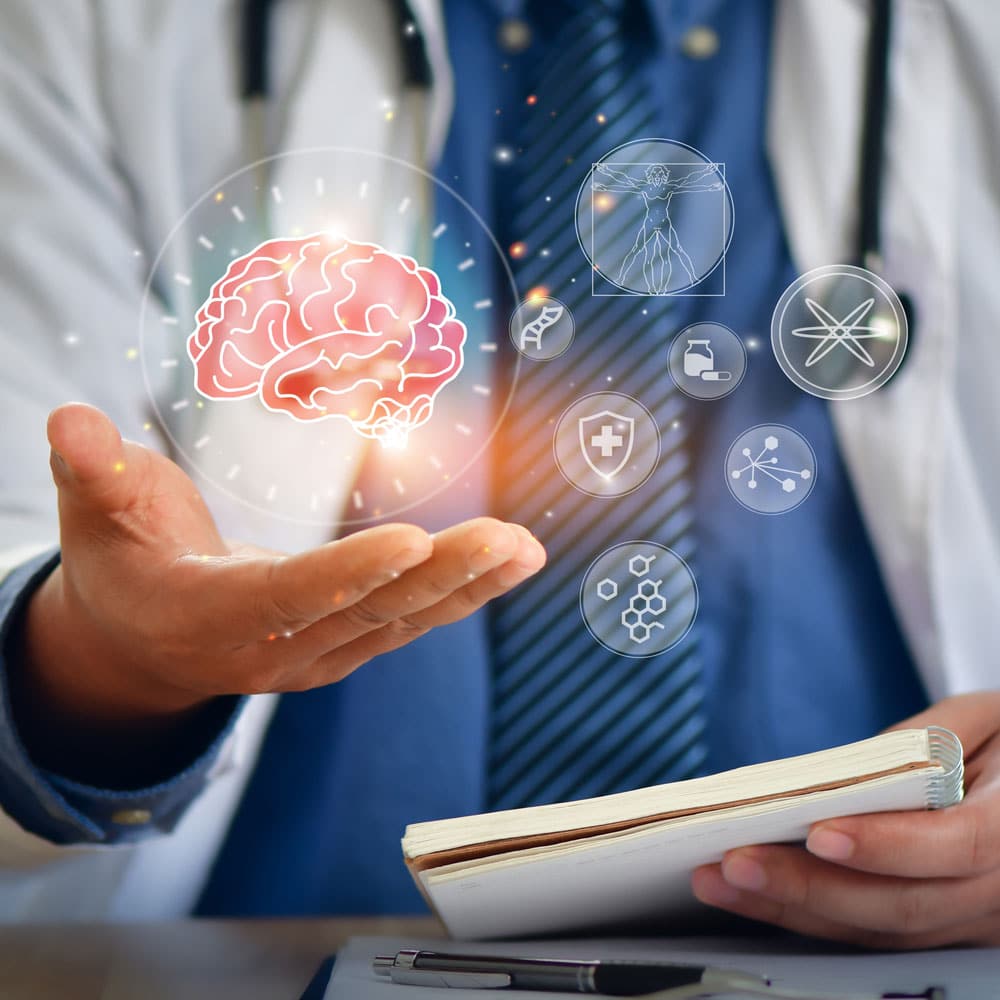In an age where artificial intelligence (AI) is swiftly becoming an integral part of our lives, it’s essential to examine its impact on mental health and its role in addressing the shortage of mental health providers. AI’s rise in...
By Anna McKenzie
In an age where artificial intelligence (AI) is swiftly becoming an integral part of our lives, it’s essential to examine its impact on mental health and its role in addressing the shortage of mental health providers. AI’s rise in the realm of mental health is indeed transformative, offering numerous benefits such as virtual therapists, AI wearables, and apps that can detect mental health conditions. However, the adoption of AI in mental health also comes with its own set of relational, technical, and ethical challenges.
The Benefits of AI in Mental Health
One of the most significant advantages of AI in mental health is its ability to address the shortage of mental health providers. Across the globe, millions of individuals struggle with mental health issues, but the shortage of mental health professionals often leaves them without access to adequate care.
According to Psychiatry Services, a shortage of psychiatrists is projected to be between roughly 15,000 to 30,000 through 2024. In fact, as of March 2023, 160 million people in the US live in areas with a shortage of mental health professionals, as reported by The Commonwealth Fund. Virtual therapists and chatbots powered by AI have emerged as a viable solution to this problem. These digital platforms can provide immediate support and offer recommendations for therapy, filling the gap in mental healthcare.
Data Science Central points out that AI wearables can monitor various physiological and behavioral parameters in real time, making them helpful tools in the detection of mental health issues. In one example, JAMIA Open reveals that machine learning models can assess psychological resilience using heart rate variability data. Early detection of psychological distress allows you to seek help promptly, potentially preventing the escalation of mental health problems.
According to DatalinkNetworks.net, AI can also be used to help doctors develop personalized treatment plans and even individualized nutrition plans. By considering data such as your unique medical background, genetics, and lifestyle choices, AI can recommend tailored interventions that are more likely to yield positive outcomes.
By considering data such as your unique medical background, genetics, and lifestyle choices, AI can recommend tailored interventions that are more likely to yield positive outcomes.
The Negative Impact of AI on Mental Health
The negative impact of AI on mental health may take a couple different forms. First, chatbots and virtual therapists, although useful, lack the empathy and nuanced understanding that human mental health professionals possess. You may receive inappropriate or harmful recommendations that can potentially exacerbate your mental health issues. For example, AI models tend to reflect human bias, which can potentially cause them to generate inappropriate responses to certain individuals or groups. Harvard Business Review reports, “AI can help identify and reduce the impact of human biases, but it can also make the problem worse by baking in and deploying biases at scale in sensitive application areas.”
Second, the growing presence of AI in mental health may lead to the potential erosion of human interaction. Meaningful human connections are vital for mental wellness, and if AI systems replace or diminish these interactions, it could ultimately lead to feelings of loneliness and isolation. While AI can provide support, it can only complement, not replace, human therapeutic relationships. As Focus: The Journal of Lifelong Learning in Psychiatry explains, the human connection between a patient and therapist (known as therapeutic alliance) is the most common predictor of treatment success, regardless of the modalities and approaches used.
AI and Mental Health: Striking the Right Balance
To avoid the negative effects of AI and harness its benefits in the mental health field, a balanced approach is essential. Here are some key considerations:
Supervision and Regulation: There must be rigorous oversight and regulation of AI systems used in mental healthcare to ensure their safety and effectiveness. User Education: Users of AI-powered mental health tools should be educated about the limitations of these systems and encouraged to seek human assistance when necessary. Ethical Considerations: The ethical implications of AI in mental health, such as privacy concerns and data security, need to be carefully addressed to protect sensitive information.
AI’s increasing presence in mental healthcare presents a double-edged sword, offering remarkable benefits in addressing provider shortages, early detection, and personalized treatment plans, while also posing risks of harm and reduced human interaction. At best, tools like virtual therapy can offer helpful touch points when clinicians are unavailable, and AI models can assess real-time, case-specific, or large-scale data to help professionals make more informed decisions and serve patients better.
Treatment for Mental Health Issues
At The Meadows, we employ evidence-based and innovative forms of care to help you recover from life-disrupting mental health conditions. Our approaches are backed by science and fundamentally based on the human therapeutic interactions that can best promote your healing. If you’ve been struggling with mental health issues or addiction of any kind, don’t wait any longer to consult our team. We would love to point you in the right direction and help you get the comprehensive treatment you deserve so you can live freely again. Contact us today to learn more.
*Note from the author: AI was used in the writing of this article as an experiment to see how it would summarize its own benefits and harms in the mental health field. It provided general information in a readable, discussion-friendly format. The content was modified to ensure topical relevance, reduce repetition, and provide a consistent flow of thought. Currently, AI models can’t be trusted to provide legitimate sources, so all statements were verified, with sources independently researched and added by the author.


